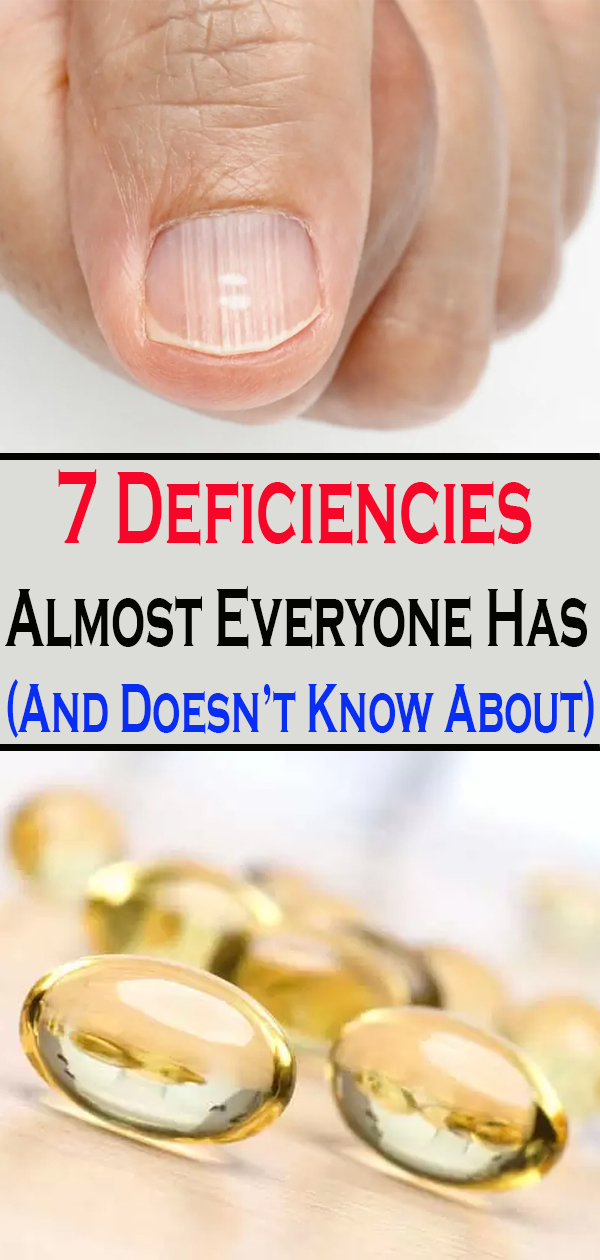We need a certain amount of various nutrients on a daily basis; vitamins and minerals, in particular, are crucial elements to nearly every important biological process in the human body. Given how much food the average American consumes, it’s astonishing to think that we’d have any problem acquiring the appropriate nutrients. Alas, we do have a number of nutrient deficiencies that are strangely common.
“Nutrient deficiencies alter bodily functions and processes at the most basic cellular level.” ~ Tricia L. Psota, Ph.D., RDN
Here Are 7 Nutrient Deficiencies That Many People Have And Doesn’T Know About:
1. Iron Deficiency
Iron is the main component of red blood cells. It binds to the substance hemoglobin and transports oxygen throughout the body.
There are two dietary varieties of iron: heme and non-heme. Heme iron is easily absorbed and is mainly found in animal food. High concentrations of heme iron are found in red meat. Non-heme iron is more common and is found in both animal and plant foods. It is not as easily absorbed as heme iron.
Iron deficiency estimates: 47% of preschool-aged children; 42% of pregnant women; 30% of menstruating women, and 25% of all people, worldwide.
Symptoms of iron deficiency include impaired cognitive function, impaired immune system function, fatigue, and a weakened immune system.
The best sources of heme iron include: red meat, seafood, organ meat, and canned sardines. The best sources of non-heme iron include: kidney beans, pumpkin, sesame or squash seeds; broccoli, kale, and spinach.
2. Vitamin D Deficiency
Vitamin D is critical for skin and bone health, and for nerve transmission throughout the body. Exposure to sunlight is paramount to natural Vitamin D acquisition, as the vitamin is created from cholesterol produced by the skin.
Vitamin D deficiency estimates: 82% of people with dark skin; 74% of elderly individuals, and 42% of U.S. adults.
Symptoms of vitamin D deficiency include: fatigue, muscle aches, and weakness. The symptoms of vitamin D deficiency can be vague, however.
The best sources of vitamin D include: sunshine (!), fortified milk or yogurt, fatty fish (mackerel, salmon, trout), cod liver oil, and egg yolks. It is tough to get enough vitamin D from diet alone, so exposure to a bit of sunshine every day is essential.
3. Vitamin B12 Deficiency
Vitamin B-12 is critical for proper brain and nerve function, and for the production of DNA. Per Harvard Health Publishing, vegetarians and vegans, in particular, may be at risk for developing B-12 deficiency as plants do not produce the nutrient.
Symptoms of B-12 deficiency may include: numbness in the feet, hands, or legs; dizziness, weakness, fatigue; a swollen, inflamed tongue; memory loss, paranoia, and hallucinations.
Vitamin B-12 estimates: 80 to 90% of vegetarians; 20% of older adults, and around 30% of U.S. adults.
The best sources of B12 include fish, chicken, milk, and yogurt. The best sources for vegans include Nutritional yeast, meat substitutes, and fortified soy or almond milk.
4. Calcium Deficiency
Calcium, as we all know, is crucial to bone health and maintenance. But calcium is also essential to nerve transmission; in fact, without it, our primary organs would not be able to function correctly.
Calcium deficiency estimates: 80 to 90% of vegans and vegetarians; 20% of elderly individuals, and 30 to 40% of U.S. adults.
Symptoms of calcium deficiency include muscle abnormal heart rhythm, bone fragility, and muscle cramps. The best sources of calcium include whole milk and dairy products, dark green vegetables, and boned fish.
5. Magnesium Deficiency
Magnesium is a critical mineral that affects just about every bodily function. ‘Mg’ is crucial for brain function, nerve signaling, bone structure, and enzymatic reactions.
It is estimated that up to half of the U.S. population consumes the required amount of magnesium. Magnesium deficiency has been linked to several diseases, including heart disease, osteoporosis, metabolic syndrome, and type 2 diabetes.
Symptoms of magnesium deficiency include loss of appetite, nausea, vomiting, fatigue, and muscle weakness.
Good sources of magnesium include nuts (almonds and cashews), whole grains, dark chocolate, and dark leafy green vegetables.
6. Folate Deficiency
Folate is a B-vitamin that is naturally present in many foods. A form of folate called folic acid is used in certain dietary supplements and fortified foods. Folate plays a crucial role in the manufacturing and production of DNA and other genetic material; it is also needed for cell division and synthesis.
Symptoms of folate deficiency include fatigue, mouth sores, and changes in the color of hair, nails, and skin. Excellent sources of folate include beans, fortified cereals, dark leafy greens, and lentils.
7. Iodine Deficiency
Iodine is an essential mineral for normal thyroid function and the production of thyroid hormones. It is vital for brain development, bone health and maintenance, metabolic regulation, and growth.
Iodine deficiency is one of the most common nutritional deficits in the world, affecting up to 33 percent of the world’s population. Iodine deficiency may produce many symptoms, including increased heart rate, enlarged thyroid gland (goiter), trouble breathing and shortness of breath, and weight gain.
The best sources of iodine include shellfish, seaweed, white fish, dairy, and eggs.


